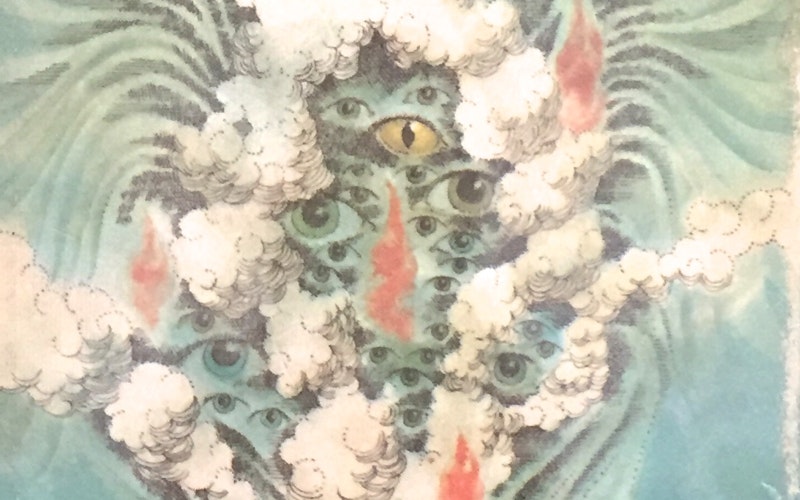
Culture At Large
Learning to Love in Madeleine L’Engle’s Wind in the Door
Though A Wrinkle in Time made its big-screen debut last month, Madeleine L’Engle’s original novel—and the series it launched—have permeated fantasy and sci-fi culture for decades. Within these books are timeless lessons about the spiritual nature of the human experience, delivered in prose rich enough for adults to savor, yet simple enough for children to understand. A Wind in the Door, which followed A Wrinkle in Time, is just as theologically rich as its predecessor, delving into the mortal dangers of hatred and the reason love involves more than pleasant feelings.
A Wind in the Door follows Meg, the heroine of Wrinkle, on another fantastic journey, this time to save her brother, Charles Wallace, from a mitochondria-sized illness. Charles’ ailment is connected to the Echthroi (Greek for “enemies”), antagonistic and frightening creatures whose goal is to “X” all of creation—to annihilate it. Meg’s guide, a cherubim named Proginoskes, describes the Echthroi this way: “I think your mythology would call them fallen angels. War and hate are their business, and one of their chief weapons is un-Naming—making people not know who they are. If someone knows who he is, really knows, then he doesn’t need to hate.”
Meg, then, must fight against the Echthroi and save Charles Wallace by becoming a “Namer” like Proginoskes—essentially a life-affirming, purpose-giving ambassador, one who loves. But truly unselfish love, which stems from sacrifice and not from feelings, becomes especially difficult when Meg’s first test involves naming her less-than-lovable principal, Mr. Jenkins. In fact, Meg thinks that she just might hate Mr. Jenkins, especially because he has never understood her eccentric family and has never given her (or her precocious brother) the benefit of the doubt. “‘If I hate Mr. Jenkins whenever I think of him, am I Naming him?’ Proginoskes shifted his wings. ‘You’re Xing him, just like the Echthroi.’”
How difficult it is to love the unlovable, to love those who are prickly and antagonistic. Meg says, “Progo! Help me! How can I feel love for Mr. Jenkins?” Opening his eyes very wide, the cherubim responds, “What a strange idea. Love isn’t feeling. If it were, I wouldn’t be able to love. Cherubim don’t have feelings. ...Love isn’t how you feel. It’s what you do.” So Meg must learn to put aside her negative feelings associated with Mr. Jenkins and view him in a new light: as someone with purpose, someone in need of an identity, someone who needs love. With great exertion and a lot of guidance from Proginoskes, Meg remembers a time when Mr. Jenkins bought a new pair of shoes for a low-income student, a young man who has become one of Meg’s best friends. Begrudgingly, Meg realizes that she can love Mr. Jenkins, but: “It’d have been a lot easier if I could have gone on hating him.”
How difficult it is to love the unlovable, to love those who are prickly and antagonistic.
This is the fundamental lesson of love: it cannot be a feeling, and it cannot be doled out based on “lovable” behavior. As the oft-quoted love chapter in 1 Corinthians says, love persists through trials, endures when it goes unreciprocated, transcends the corporeal. Indeed, love never dies. In realizing how to love Mr. Jenkins, even when he seems undeserving, Meg comes to a redefinition of the concept and is able to Name the pedantic principal. And Mr. Jenkins, though stiff and uncomfortable at first, eventually assumes a refreshed identity, all because of Meg’s love for him.
Ultimately, love wins in A Wind in the Door, as it does in our greater narrative. Though we experience hatred, pride, and evil, love proves more powerful, more permeating than hate. Once Meg and Mr. Jenkins are truly Named, the Echthroi cannot touch them.
How true this is in our world. When we can comprehend the depths of love, a love that runs counter to our culture of feelings and gratification, we too become Named. The danger is that the Echthroi are always at work: in our pride, in our self-sufficiency, and in our unwillingness to love the unlovable. If we can die to self and accept Christ’s salvific love, a love that has little to do with our feelings, we can then be his ambassadors in an unloving world.
Topics: Culture At Large